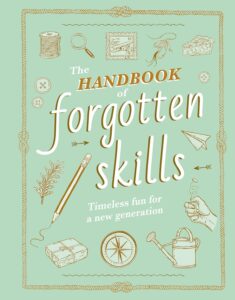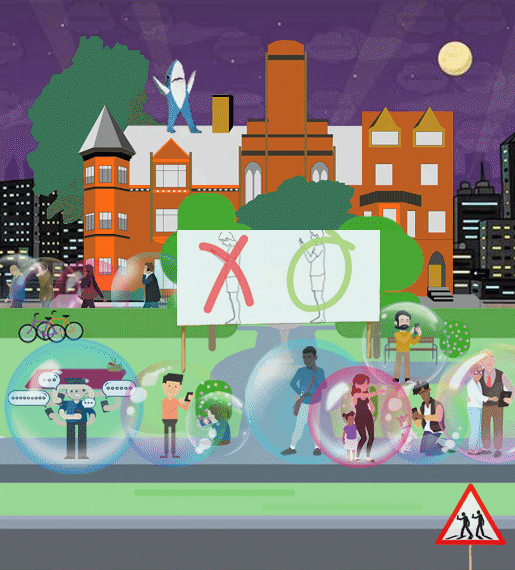Once in a while I get fed up with a certain game or the game designers alternative motive and throw it down. Often times it’s another DLC money grab from the developer or a hidden pay wall to win. Regardless, money seems to be the only thing driving the modern video game market. On the other side of the coin you have millions of avid gamers willing and ready to murder someone just to get one rank higher in CSGO, League of Legends, or WoW PvP. You name the game, with online multiplayer, 98% of the player base turns into cut throat douche bags trying to achieve a pixelated accomplishment. Have you ever noticed a common theme among these current games? The community is “toxic”. You can read hundreds of these reviews for almost any online multiplayer game.
In regards to games going down hill in the last 5-10 years that point could be made. That developers have used the internet and hype to clear out the pockets of their fans while delivering low brow, no creativity, non functioning video game as their 5th alpha game this decade. Some fans claim the pretty graphics make up for low quality gameplay and non existent creativity as they hold up just a few games in the last 10 years to maintain their point.
Another reason some of these games like WoW last over a decade, because nothing has come out to beat it. You can list some other game but the reality is nothing has been as popular as WoW for PC gaming. Other hugely popular games like Minecraft or Terraria still remain some of the top games out there, with the most copies sold world wide. These games are not graphically amazing and two of them are essentially a 2d Windows 98 game. The reason they were so popular is the creativity behind the game. WoW is a bit of an exception as lore and past games built into it but games like Minecraft are solely on their own.
Games that are not known for their online multiplayer seem to be the most popular as far as playability. Or online multiplayer without the “PvP competition”. I put that in quotations because a lot of people seem to think “skill” is involved in ranking high in a lot of these games but the reality is you just have to play a lot. There is no “Call of Duty skills”, however there is memorization of maps, spawn locations, and objectives. Which is hardly a measure of skill, but rather you simply put more focus on CSGO than the other guy.
Most of these online games themselves can be won depending on who is the host alone! Games like Fortnite where players gloat about being #1 when the reality is the best gamers probably aren’t wasting away on Twitch begging for donations. They have real hobbies, real lives, and other things they prefer doing than staring at a computer all day. Yet this is considered a “skill”. If someone get’s 1st in 100 Fortnite matches but played 500,000 matches are they really skilled? Verse someone that gets 1st in 100 Fortnite matches with only 500 games.
This brings me to my next point, that the internet actually killed video games. Between Twitch and YouTube it seems game developers base their entire game off what a few streamers say online and their baby sitter audience of 8 year olds. Have you ever played a game that had potential? That was a lot of fun?
Only to watch it get destroyed by these “skilled” players because they can’t actually do it. Dumbing down games like WoW where the hunter bow quest from vanilla actually took some class skill to accomplish. Or at least knowing your characters limits and abilities very well. It was actually a token of accomplishment in game, whereas modern WoW simply hands out gear for “completing” a run.
These same people get into multiplayer games, playing hours a day, whether they are silver, gold, or diamond, commando, or super man of CSGO, it all remains the same. Their attitudes and delusions of becomming the next Twitch famous streamer is held up next to their “COD” weekend tournament trophy. (Only 3 teams entered). They cuss you out online for hitting the wrong button, they flame you for using “e” instead of “q” when you should have “w”. Yet they are the same rank as you. The entire online community of video games has turned into a cesspool of narcissistic morons that think video games is an actual skill. It’s not! It’s entertainment!
I remember back to Super Nintendo, N64, regular Nintendo, Sega, Xbox, ect. How much fun the games were, how much fun I had at LAN parties with buddies, and how intense those Halo sessions were with a group of friends. We’d usually go to the store first, get a bunch of fake food and snacks with some sugar water and hit the console all night.
Renting a game for the weekend was such an exciting thing as a kid and the excitement in the car as I anticipated the bike ride to my buddies house to sound the alarm for the new game. I don’t remember ever having a real fight, being cussed out, or threatened in any of these matches. Were their intense moments? Of course, but that’s what made it fun. At the end of the night there was no ranking, no delusional stat system. It was all fun and it built those relationships.
The internet however, has turned gaming into some sort of retard competition where hitting one button a second before the other determines your “skill”. Lag itself and who is hosting the game, forget all that, it’s not like it matters when the opponent has an extra 3 seconds of visual time before you do right?! Haha.
Or other games like League of Legends that are won and lost at the champion select screen. Does it take skill to play that game? No. Literally none. What it does require though, is a lot of time spent memorizing and staying updated on their champion updates. A game where they literally buff and nerf champions to sell skins as their player base cries about rank and skills. Sorry dude, but there is no skill required in playing League of Legends.
The worst part is these are the people that make up the “toxic community”. A bunch of gun hoe retards chasing a rank. They get so caught up in this rank they are willing to act like a douche bag in order to lord their “skill” over another person that most likely just hasn’t played as much. These same tools will admit to being on a “smurf” account as they belittle and flame anyone that messes up. Reality check, you are playing with bad players just to feel good about yourself.
It’s a bit of a narcissistic supply grab for many of these sociopathed out morons. The difference between the internet and no internet is, if some little douche bag ran his mouth in real life like that he’d get his ass beat because fighting requires more than button mashing, luck, and no lag. I promise you won’t see the left or right hook coming but I can guarantee you’ll be crying about hacks as you crawl up in the fetal position hugging concrete. Then they learn not to act like that anymore.
Online however, is a different story. In most cases the toxic player will gaslight their victim into calling them out. In which case the real toxic player will report the victim along with their crew of butt buddies and you will get banned or timed out from playing. I remember when I used to play League of Legends seeing this exact scenario played out.
Some douche bag was harassing another player for not “w” when he should have “e” and I simply called him a douche bag and told him to shut up, let the guy play. I was banned for 2 weeks immediately after the game by their “auto” ban feature. Why? Him and his 69 partner reported me. Games like this literally promote toxic behavior without even allowing the victim to fight back without threat of ban them self. Another reason online gaming sucks.
Having to be politically correct all day just to keep your job only to come home and do the same thing in your video game under threat of ban or removal. Call someone out for being a little dicked douche bag, or a passive aggressive cunt, and you will be banned. Games like League of Legends teach their fans to behave like good little passive aggressive faggots with no threat of any type of slap on the wrist.
Not even a verbal confrontation is allowed or the victim will literally get banned. A typical response to this is usually “get better baddy”, and to those people I always ask them what game they play, then I ask their rank, typically I am twice their rank at least, and about 1/10 the play time… and I AM NOT EVEN TRYING TO GET A RANK.
It was hilarious listening to low ranked CSGO players cry about rank and how hard they try when I would simply hop in the game and play for fun, mopping the floor with them. It brought me down memory lane to write this article however as it required me to relive my Super Nintendo days, and the extreme amounts of fun playing Golden Eye for the N64. Or Mario Party. Was their competition? Sure. But if you were too big of a dick head you just weren’t invited back.
The problem with online gaming however is that the invitation is always there. Regardless of how many you block and report you will simply be put on another team with another toxic douche bag chasing a pixelated rank that some how brings worth and value to their life. It doesn’t matter the game, how good or bad, there will always be toxic players, cheaters, and strait up douche bags, and this is exactly why I say the internet killed video games.
Filthy casuals..






